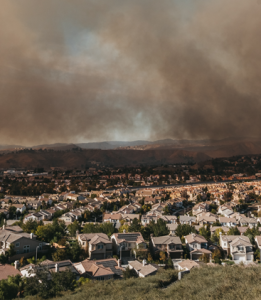As “climate risk” enters the mainstream investment lexicon, the Lab is helping to provide the financial and insurance sectors with a holistic, evidence-based snapshot of how climate change will impact the economy and their investment decisions. It’s research quantifying climate risk—both from a macroeconomic perspective and through a more localized hazard-specific lens—has helped to inform:
- A first-of-its-kind report by the Commodity Futures Trading Commission (CFTC) that urged urgent and decisive action to “measure, understand and address” risks posed by warming;
- An official acknowledgement from the Federal Reserve of climate change’s importance in reports on financial stability and supervision and regulation;
- A physical climate risk assessment from BlackRock, the world’s largest financial asset manager, that emphasized how historically-calibrated statistical models used by investors, insurers, corporate risk officers, and government planners to assess the likelihood of extreme events can significantly underestimate actual risk, both now and in the future; and
- A first-of-its-kind climate risk assessment used by the Bank of England in the mandatory stress tests for all insurance companies it backs.
Impact
The Climate Impact Lab and the Federal Reserve Bank of San Francisco hosted a conference where they brought together policymakers, regulators, and leading researchers on the topic of climate risk to the U.S. financial system. It featured keynote speakers from the CFTC, the Federal Reserve, and Capitol Hill, and panel discussions on climate change’s macroeconomic and regional risks.
More than 850 people registered for the event. Just one-third were academics, reflecting the growing interest in these issues in government and the private sector. Indeed, many registrants came from the private sector, including representatives from investment banks, asset management companies, financial advisories, insurance providers, corporate sustainability offices, mortgage loan providers, law firms, and climate tech firms. Other attendees hailed from climate and development-focused nonprofits, federal policy think tanks, and philanthropies, as well as from relevant federal agencies, Capitol Hill, and state and city governments.
Lab expertise is also leveraged by the US Department of Treasury. Lab Executive Director, Emily Grover-Kopec, is among the 20 experts serving on the Climate-Related Financial Risk Advisory (CFRAC) Committeethat was established by the Treasury Department Financial Stability Oversight Council (FSOC). CFRAC assists the FSOC to identify, assess, and mitigate climate-related risks to the financial system.




